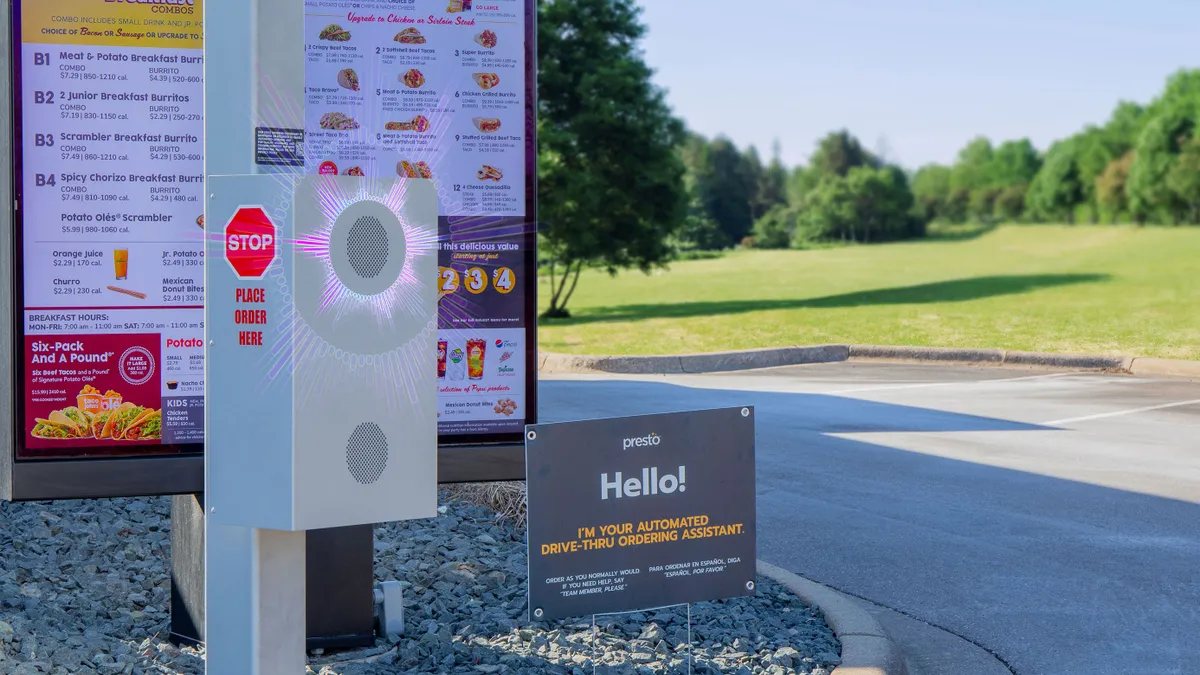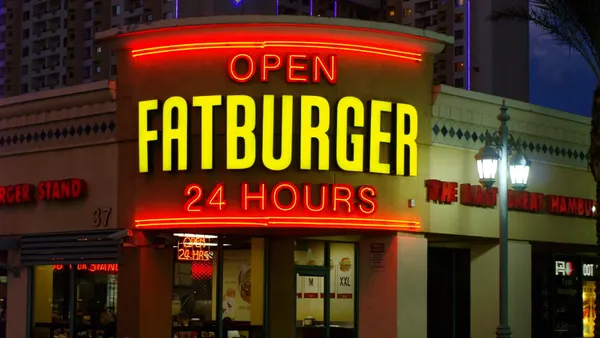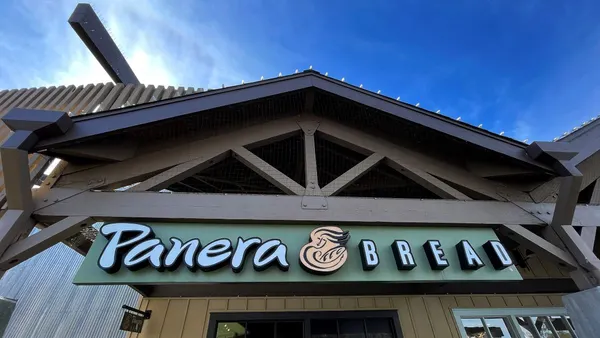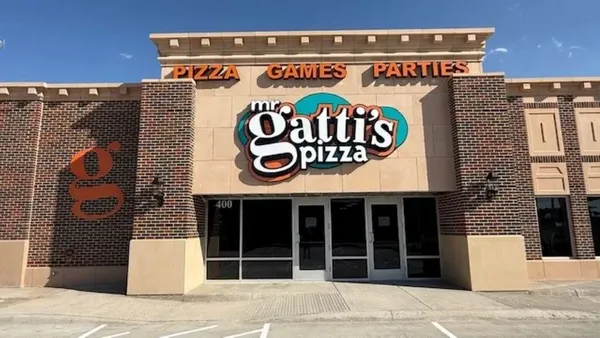Dive Brief:
- Presto Automation’s CEO Guillaume ‘Gee’ Lefevre predicted the company would probably be de-listed from the NASDAQ stock exchange, but that move could be beneficial by allowing Presto to act more like a tech start-up than a publicly traded firm.
- The company’s investors, led by Remus Capital and Cleveland Avenue, have clashed with its secured lender Metropolitan, Lefevre said in a Monday interview with Restaurant Dive. Earlier this month, Metropolitan presented the company with a series of options relating to the continuation of its loan forbearance, according to an 8-K filed by Presto earlier this month.
- Lefevre said the business has strengthened since February, when he joined as interim-CEO, and when the company told the U.S. Securities and Exchange Commission that liquidity problems raised doubts about its ability to continue as a going concern. Presto’s operations would continue regardless of the outcome of Metropolitan’s plan, he said.
Dive Insight:
Metropolitan and Presto agreed that Metropolitan would refrain from taking action against Presto, “including but not limited to an Article 9 foreclosure, which would result in the Common Stock becoming worthless,” so long as the AI firm met certain obligations, according to its filings with the SEC.
Those obligations include the following: raising $6 million in capital in three installments due on Aug. 1, 15 and 31; and raising $32 million by the end of August to “facilitate negotiations with its senior secured lender for the assignment and restructuring of their loan.” Lefevre said the agreement was an extension of a previous deal between Presto and Metropolitan. Presto said in an 8-K that it was “extremely unlikely” it could raise enough money to meet the terms of the July agreement.
Lefevre said the options for restructuring the ownership and capital structure of the company did not include bankruptcy. Regardless of the outcome of the loan agreement with Metropolitan, de-listing may be beneficial for Presto, Lefevre argued.
“Presto is a micro cap public business that is behaving like a technology startup and should be behaving like a technology startup,” Lefevre said. “That is not actually conducive to business on the NASDAQ.”
“I think this business will be materially better served [in over-the-counter trading] to give us the flexibility to trade as we want to,” Lefevre said.
Lefevre said improvements in Presto’s technology, and its deployment in hundreds of restaurants, has strengthened the value of the company. For years, Presto focused on casual dining tablet technology, which accounted for the majority of its revenue when it began shutting that business down earlier this year to focus on drive-thru voice AI.
Improvements in the technology are forthcoming in drive-thru AI that will lead to greater efficiencies and deployment, Lefevre said. In May, the company began adding its “pure AI” option, which does not have a human monitoring all of its transactions. According to its 10-Q for the first quarter, about 54% of its orders required some sort of human oversight, down from 70% earlier this year, when Presto chairman Krishna Gupta disclosed to Restaurant Dive that the company uses workers in the Philippines to monitor order accuracy. Lefevre said the company offers several kinds of AI ordering technology for different business purposes.
“In pure AI sites well over four-fifths of orders [are] fully automated,” Lefevre said. But in other situations, such as a rush hour, it may make more sense to have agents monitoring or leading the technology to ensure smooth order processing.
Presto listed Carl’s Jr., Hardee’s and Wienerschnitzel as voice customers, and it announced a pilot with Taco John’s in June. The company is testing an AI tool with a preset menu encompassing most fast food items at in an unspecified number of locations, which will speed up the firm’s ability to deploy at brands, Lefevre said. This would require less training and alteration to the model for each additional brand.











